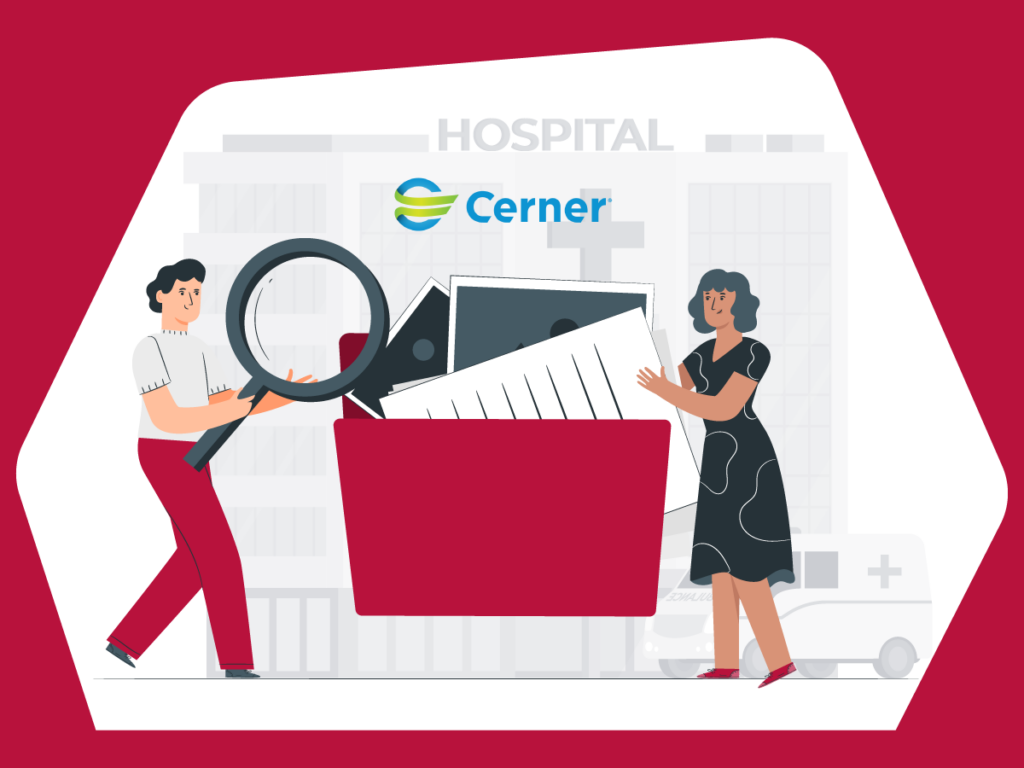
Introducing Cerner EMR: Challenges in Accessing PHI Records and the Role of Itirra in Overcoming Them
Cerner EMR (Electronic Medical Record) is one of the most widely adopted healthcare technology platforms used by hospitals and healthcare providers across the globe. Known for its flexibility and focus on interoperability, Cerner’s platform serves a wide range of healthcare environments, from small practices to large health systems. With a comprehensive suite of features designed to manage patient information, Cerner helps organizations streamline clinical workflows, enhance patient care, and improve operational efficiencies. However, as healthcare systems become increasingly complex, certain challenges arise, particularly when it comes to accessing Protected Health Information (PHI) records within Cerner’s system.
Challenges in Accessing PHI Records for Physician Advisors
Physician Advisors, who provide critical clinical guidance to hospitals, face unique challenges when trying to access PHI records stored within Cerner EMR. Physician Advisors often need comprehensive patient data to ensure clinical care is being delivered effectively and that documentation supports appropriate billing and reimbursement. Cerner’s vast database and complex system structure can make it challenging for advisors to quickly access the necessary records. Navigating through layers of clinical and administrative data often requires extensive training and familiarity with the system, which can delay the advisory process. Furthermore, when trying to retrieve patient-specific information from multiple departments or facilities, the inconsistency in user permissions and access control can result in delays or incomplete data retrieval.
Challenges for Revenue Cycle Management (RCM) Companies
For Revenue Cycle Management (RCM) companies that support hospitals by managing billing, coding, and reimbursement processes, accessing accurate PHI from Cerner is crucial to ensuring timely and accurate claims submissions. However, RCM teams often encounter difficulties when interfacing with Cerner’s platform. One of the key hurdles is the complexity of Cerner’s data structure and the need for extensive customization to pull the right information from different parts of the system. Whether it’s identifying patient diagnoses, procedure codes, or treatment details, retrieving this information requires sophisticated data querying tools. Furthermore, frequent updates and customizations to Cerner’s platform may cause inconsistencies in data retrieval, leading to errors in billing or delayed reimbursements.
Challenges for Other Service Providers and Consultants
Similarly, third-party service providers and consultants, such as those offering analytics, clinical decision support, or healthcare IT services, encounter obstacles when extracting PHI from Cerner EMR. These companies often need access to a wide range of patient data to provide insights into patient outcomes, optimize hospital operations, or offer software solutions that enhance clinical decision-making. However, Cerner’s reliance on proprietary formats and interfaces, along with its integration challenges with other systems, can create barriers to data extraction. Whether it’s extracting longitudinal patient records or real-time clinical data, these service providers often struggle with navigating Cerner’s interfaces and APIs to ensure seamless data access across multiple hospital systems or regions.
Security and Compliance Concerns with PHI Access
Another common challenge faced by organizations accessing PHI from Cerner is ensuring security and compliance with regulations such as HIPAA (Health Insurance Portability and Accountability Act). Hospitals and third-party vendors must follow stringent protocols to safeguard sensitive patient data when pulling records. While Cerner offers robust security features, the complexities of compliance and user access management can lead to issues, particularly when multiple stakeholders are involved in accessing the data. For organizations working with PHI, it’s critical to ensure that all users have the appropriate permissions to access the data they need without violating privacy laws or risking data breaches. Balancing the need for efficient data retrieval with the necessary security measures can be challenging for both in-house and external teams.
Itirra’s Role in Solving Cerner PHI Access Challenges
Itirra, a health tech lab based in Washington state, specializes in solving these complex integration and data access issues. With over a decade of experience in designing and developing bespoke integration technologies, Itirra helps healthcare organizations and third-party service providers efficiently pull PHI from Cerner EMR. Itirra works closely with clients to design custom solutions that streamline the extraction of patient data while ensuring compliance with all relevant security regulations. Whether it’s developing custom APIs, creating seamless integrations between Cerner and other health IT systems, or optimizing data workflows for faster access, Itirra provides tailored solutions that address the unique needs of Physician Advisors, RCM companies, and other service providers.
By leveraging Itirra’s expertise, healthcare organizations can overcome the common challenges associated with accessing PHI from Cerner. Itirra’s solutions not only enhance the efficiency of data retrieval but also improve the accuracy and security of the information being accessed. With a deep understanding of Cerner’s architecture and data access protocols, Itirra ensures that healthcare providers and their partners can access the right data at the right time, ultimately improving care delivery, operational efficiency, and revenue cycle management.
In conclusion, while Cerner EMR offers a powerful platform for managing patient records and improving healthcare delivery, accessing PHI records can present significant challenges for various healthcare stakeholders. Physician Advisors, Revenue Cycle Management companies, and other service providers often encounter difficulties navigating Cerner’s complex data structure and ensuring secure, compliant access to critical patient information. With the help of Itirra’s customized integration solutions, these organizations can overcome these challenges, enabling smoother workflows and better patient care outcomes.
Contact Itirra today to learn more!

